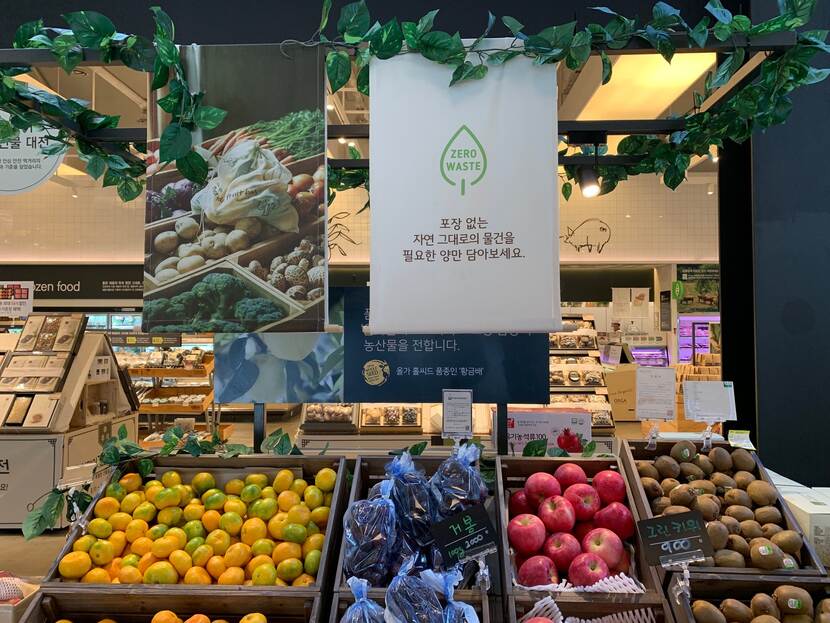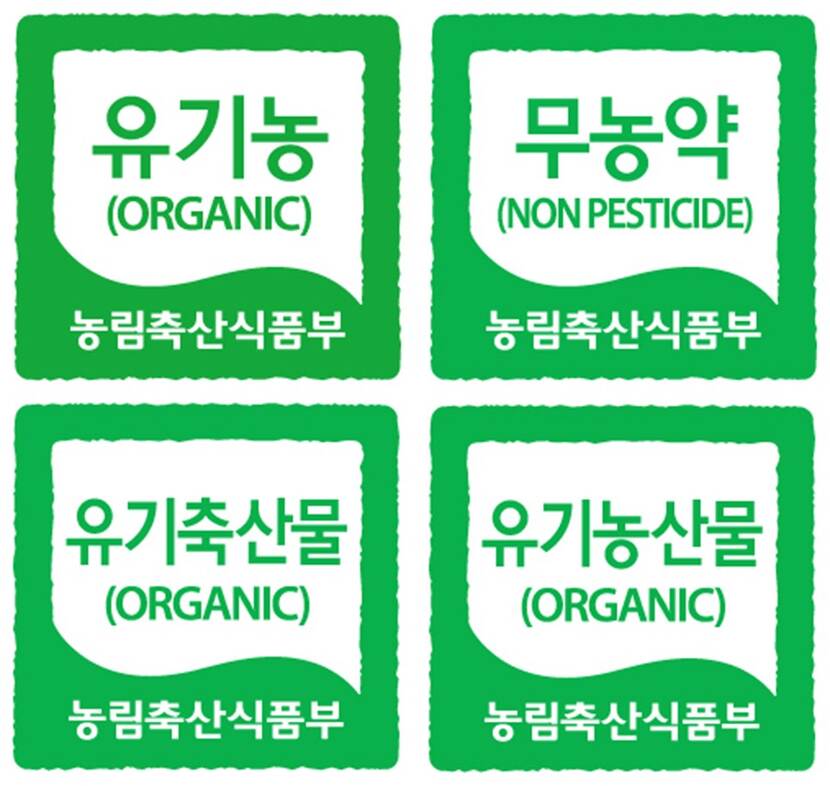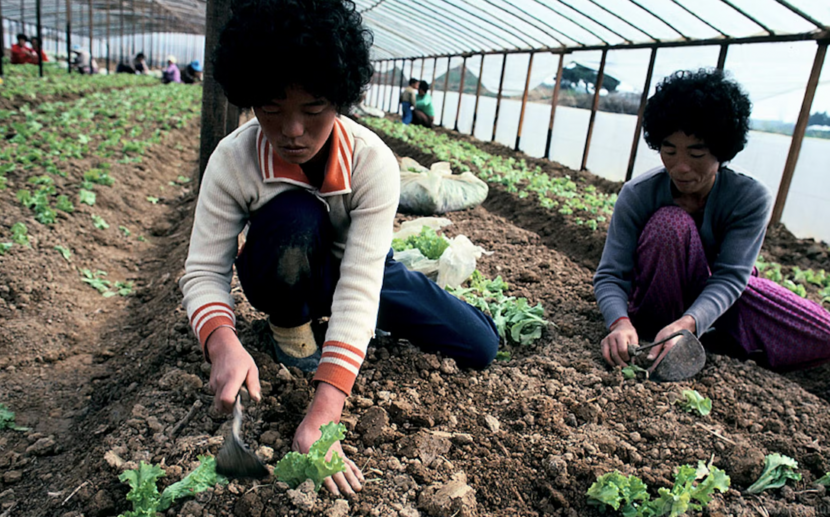South Korea’s Eco-friendly Agriculture Promotion Act
South Korea is shifting slowly towards sustainable agriculture. Consumer awareness of the environment, climate change and carbon neutrality is growing. And the government has recently announced a five-year plan to promote eco-friendly agriculture under the Eco-friendly Agriculture Promotion Act. However, the government’s top-down approach is not sufficient. In addition to market acceptance and consumer awareness, innovative technologies are needed to lower the prices of agricultural products.

Unlike the Netherlands, South Korea has many mountains, accounting for 72% of the country. The country has successfully focused on preserving forests in the mountains and preventing deforestation. Between 1990 and 2015, it has seen the biggest increase in forest resources per hectare in the world. Mountain forestry has played an essential role in nature conservation and biodiversity, while flatlands have been used for farming. Urbanization has decreased farmland size and agricultural production but has had little effect on nature in the mountains.
Fostering eco-friendly farmers and managing food products
South Korea started paying attention to eco-friendly agriculture in 2009 by putting into effect the Act on the Promotion of Environment-friendly Agriculture and the Management of and Support for organic foods, or Eco-friendly Agriculture Promotion Act in short. This act aims to pursue eco-friendly agriculture by increasing the conservational role of agriculture, reducing its environmental pollution, and fostering farmers who engage in eco-friendly practices. It also intends to manage eco-friendly agricultural and organic food products through a certification system.
Furthermore, the act reflects the government's duty to implement comprehensive measures to promote eco-friendly agriculture and organic foods, which include formulating relevant plans and promoting voluntary participation by farmers. The private sector should also endeavor to ensure environmental conservation and sustainable agriculture while minimizing pollution through environment-friendly production, manufacturing, processing, or handling practices, including efforts to avoid or reduce using chemically synthesized materials.
‘MAFRA records and collects best practices and shares them with the private sector’
The Eco-friendly Agriculture Promotion Act in short
MAFRA (The Korean Ministry of Agriculture, Food and Rural Affairs) has formulated a plan to promote eco-friendly agriculture every five years in consultation with expert groups. It includes:
- Policy objectives and directions for environmental protection in agriculture;
- Status of environmental pollution associated with agriculture and measures for its improvement;
- Measures to reduce the use of chemical substances, such as synthetic pesticides, chemical fertilizers, antibiotics, and antimicrobials;
- Measures to develop, disseminate, educate, and provide relevant technologies;
- Measures to develop a model complex of eco-friendly agriculture;
- Measures to facilitate the production, distribution, and exportation of eco-friendly agricultural products, and organic food;
- Measures to enhance public benefit from eco-friendly agriculture;
- Measures to strengthen international cooperation for the development of eco-friendly agriculture;
- Measures to secure funds to implement the promotion plans;
- Measures to foster certification bodies for eco-friendly agricultural products and organic food.
To prevent environmental pollution from agriculture, the Korean government encourages farmers to comply with standards for the safe use of pesticides, the maximum residue limits, the maximum limits on fertilizers sprayed on crops, animal waste standards, prevention of dumping wasted agricultural materials, and unauthorized discharge of wastewater. To conserve water, air and other agricultural resources, as well as to improve soil and water, the government actively applies measures to improve farmland, prevent pollution of water used for agriculture, and minimize greenhouse gas emission.

Regular monitoring to conserve agricultural resources and improve the environment
MAFRA conducts regular monitors to conserve agricultural resources and improve the environment, including:
- Changes in farmland fertility, heavy metals, pesticide ingredients, and soil microbes;
- Quality of surface water and groundwater used for agriculture;
- Status of usage of pesticides, fertilizers, and antibiotics;
- Status of public benefit of agriculture, such as water resources supply and soil conservation;
- Status of circulatory use of resources in agriculture, including composting animal manure;
- Status of distribution and consumption of eco-friendly agricultural products.
MAFRA is also making policies to support research and education/training and to develop technologies through different subsidy programs. In line with this, MAFRA records and collects best practices and shares them with the private sector. NGOs and the private sector support the government by sharing relevant knowledge.
Awareness of sustainable agriculture is growing
Nevertheless, South Korea is shifting slowly towards sustainable agriculture. Consumer awareness of the environment, climate change, and carbon neutrality is growing. In addition to bottom-up movements to protect nature, consumers are more willing to pay extra for value consumption. In line with that, MAFRA has recently announced another five-year plan to promote eco-friendly agriculture under the Eco-friendly Agriculture Promotion Act. Now, eco-friendly agriculture covers 5.2% of all farmlands. The government wants to increase that to 10% in 2025 by expanding the mandatory use of eco-friendly agricultural products in schools and public organizations and reinforcing the direct payment scheme.

Cooperation between the Netherlands and South Korea
The cases of South Korea show that each country has a different approach to nature-inclusive agriculture as the surrounding and climate is different. South Korea seeks technologies to overcome extreme weather without polluting soil/water and using chemicals. Dutch and Korean knowledge institutes have cooperated to develop a weeding robot to replace herbicides. Dutch companies export manure treatment facilities or technologies to recycle manure into fertilizer to South Korea. Dutch greenhouse builders are constructing sustainable greenhouses in South Korea for climate-smart agriculture. Since South Korea is becoming a like-minded country to the Netherlands in sustainable agriculture, the cooperation opportunities will continue to grow.
Contact
Would you like to know more about the current developments in the domain of agriculture and nature in South Korea or contact the agricultural team at the Netherlands Embassy in South Korea?
You can visit the country page of South Korea. You can also send an email to SEO-lnv@minbuza.nl
This article is part of the latest edition of e-magazine Agrospecial (June 2023) about nature-inclusive farming. The teams of our Netherlands Agricultural Network showcase nature-inclusive practices and initiatives in 36 countries worldwide. They delve into the development, benefits and challenges of this innovative farming approach. Each team has a different story to tell. Click here to read more about insights into the potential of nature-inclusive farming practices worldwide!